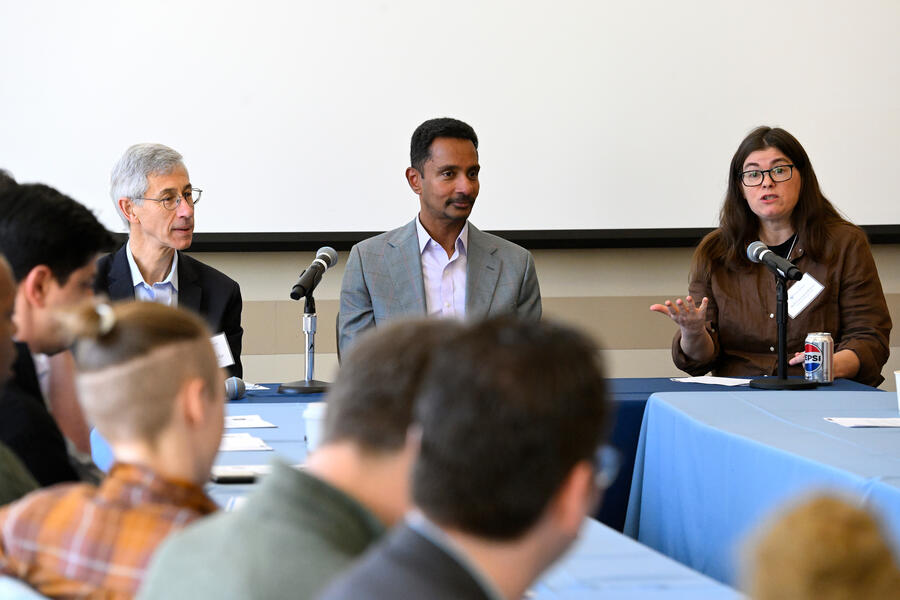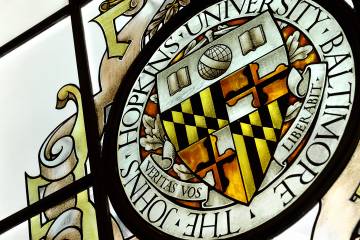A group of Johns Hopkins University faculty members participating in a yearlong provost's office fellowship program spoke last week with two leading national science journalists, who shared advice and insights on how the Hopkins scholars could communicate more effectively with audiences across the country and around the world.
NPR science correspondent—and Johns Hopkins alumna—Nell Greenfieldboyce and Tim Appenzeller, who leads the award-winning news section at Science, took part in a conversation moderated by JHU Provost Ray Jayawardhana, himself the author of four books and a regular contributor to Science during his days as a college student.
The faculty attendees are members of the inaugural cohort of the Provost's Fellows for Public Engagement, 16 scholars from across the university who through the program are actively building their public engagement skills across a range of platforms. This conversation is part of a yearlong series of trainings and opportunities designed to support the fellows in connecting with wider audiences and expanding the reach of their research. Earlier sessions included a two-day workshop led by the Alan Alda Center for Communicating Science and an intensive day of media training with Burness, a Bethesda-based public relations firm.
"Through the Provost's Fellows program, we aim to equip faculty with the tools and networks to share their expertise and insights more broadly," Jayawardhana said. "Our conversation with Nell and Tim brought that goal to life. The fellows' energy and commitment to disseminating their scholarship underscores the essential contributions that universities make to society and reflects our unwavering belief that knowledge is a public good."
The journalists discussed strategies for how faculty can build relationships with the media, some of the day-to-day challenges and constraints writers and editors face, and the types of stories they are looking for.
"I kind of assume people I'm writing for aren't scientists—they're human beings," Greenfieldboyce said. "They want to hear about other human beings dealing with issues that they deal with.
"People want to be reminded that there is progress being made and there are humans who are learning things." Added Appenzeller: "My favorite way of getting stories is hearing from scientists, academics who tell me stuff that they are working on. … Journalists love to be original first, and that's one way to get stories that are fresh."
The fellows said they found the discussion both illuminating and practical.
"My goal is to share the latest mathematical discoveries with the broader public and make math more accessible to wider audiences," said Emily Riehl, professor of mathematics in the Krieger School of Arts and Sciences. "I came away from the conversation with a much clearer sense of how to align that goal with the mission and methods of journalism. Nell and Tim offered specific, actionable advice that I've already started putting into practice—and I'm already seeing encouraging results."
The group's wide-ranging conversation concluded with a discussion about the growth of science skepticism and what can be done to restore the public's trust in science and scientists, including using new and different platforms and channels to reach new and different audiences.
"I do think the polarization in society has heightened distrust in certain areas of science," Appenzeller said. "I don't think it's all science. It's climate, and increasingly it's public health, and that's scary. But most of science is still respected. And I think the best any of us can do is present what science knows to the extent it knows it, with the appropriate caveats, be as honest as we can. We can't shape our coverage to counteract this. We just have to tell the truth as near as we can figure it out."









